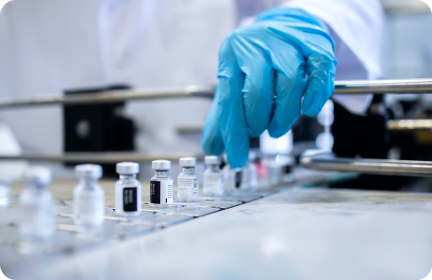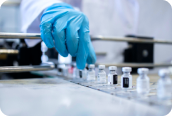Product quality & safety






Pharmacovigilance
Getz Pharma’s MedVigi Pharmacovigilance program monitors, categorizes, assesses, and evaluates any possible Adverse Drug Reactions (ADRs) that may have been caused by its marketed products.
All Adverse Drug Reactions (ADRs) should be reported within 24 hours to [email protected] or contact us at +92-21-38636363 or +92-21-38636507.

Adverse events
If you have purchased or received a Getz Pharma product that is damaged, defective, or not in its defined specifications, please download and complete this form and return it to [email protected].
Alternatively, you can report an adverse event by clicking on the button below:
Frequently asked questions
Pharmacovigilance is a critical function that ensures the safety and efficacy of
medicines throughout their entire lifecycle. It involves continuously monitoring and
evaluating medicines to identify and assess potential risks, optimize their safe use, and
provide healthcare professionals and patients with up-to-date information.
By doing so, pharmacovigilance plays a vital role in protecting public health and ensuring the
appropriate use of medicines.
MedVigi, the medicine safety department of Getz Pharma, is responsible for collecting,
analyzing, monitoring, and preventing adverse effects associated with medicines. This
department operates as a scientific and process-driven function within Getz Pharma.
Pharmacovigilance covers multiple aspects of the medicine lifecycle after its market approval, making it one of the most fundamental functions within the
life science of Getz Pharma’s product.
At Getz Pharma, the primary goal of pharmacovigilance is to safeguard product safety and efficacy.
The pharmacovigilance team conducts thorough analyses of medicine safety data and complies with the guidelines of the International Council for Harmonisation (ICH), Good Pharmacovigilance Practices (GVP) of the European Medicines Agency, and local regulations from Pakistan’s National Pharmacovigilance Centre (NPC) under the Drug Regulatory Authority of Pakistan (DRAP).
At Getz Pharma, the primary goal of pharmacovigilance is to safeguard product safety and efficacy.
The pharmacovigilance team conducts thorough analyses of medicine safety data and complies with the guidelines of the International Council for Harmonisation (ICH), Good Pharmacovigilance Practices (GVP) of the European Medicines Agency, and local regulations from Pakistan’s National Pharmacovigilance Centre (NPC) under the Drug Regulatory Authority of Pakistan (DRAP).
As part of our commitment to pharmacovigilance, we encourage the reporting of adverse drug reactions. By sharing your experiences, you contribute to identifying potential issues and enabling us to take actions that prioritize patient safety. This reporting plays a critical role in enhancing the safety and effectiveness of our products.
The package insert, or patient information leaflet, serves as the primary source of product information, listing and detailing potential adverse drug reactions associated with a medicine’s use. To enhance understanding and ensure comprehensive safety information, any of the following should be reported: known or expected side effects; allergic reactions, such as skin rashes or swelling; adverse reactions in special populations (e.g., children, pregnant women); medication errors or dosing issues; interactions with other medications; product quality concerns or defects; and any unexpected reactions not mentioned in the product information.
Adverse reactions can be reported by healthcare professionals, patients, caregivers, or anyone who has experienced or witnessed an adverse reaction
due to our products.

